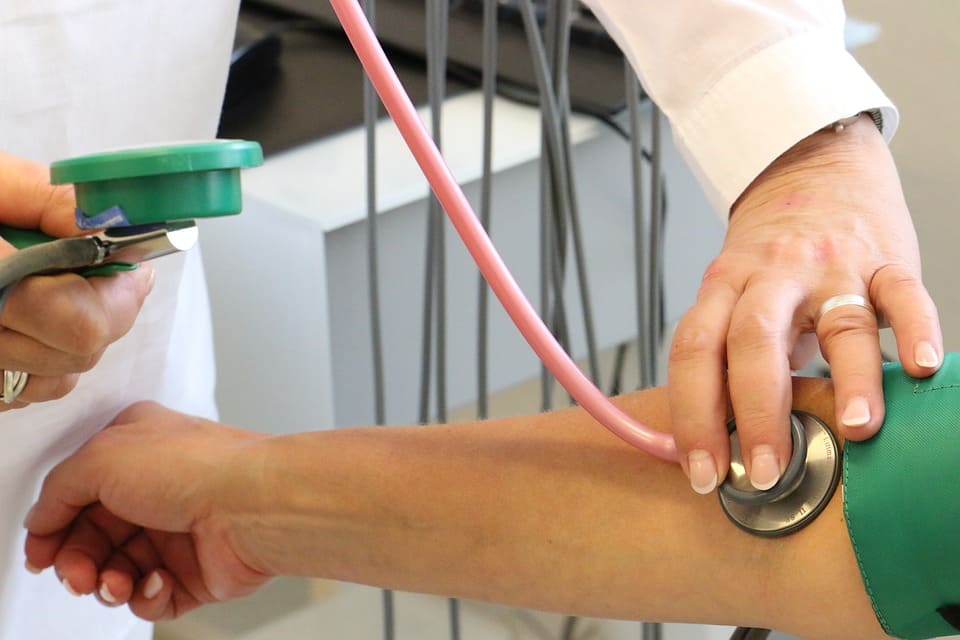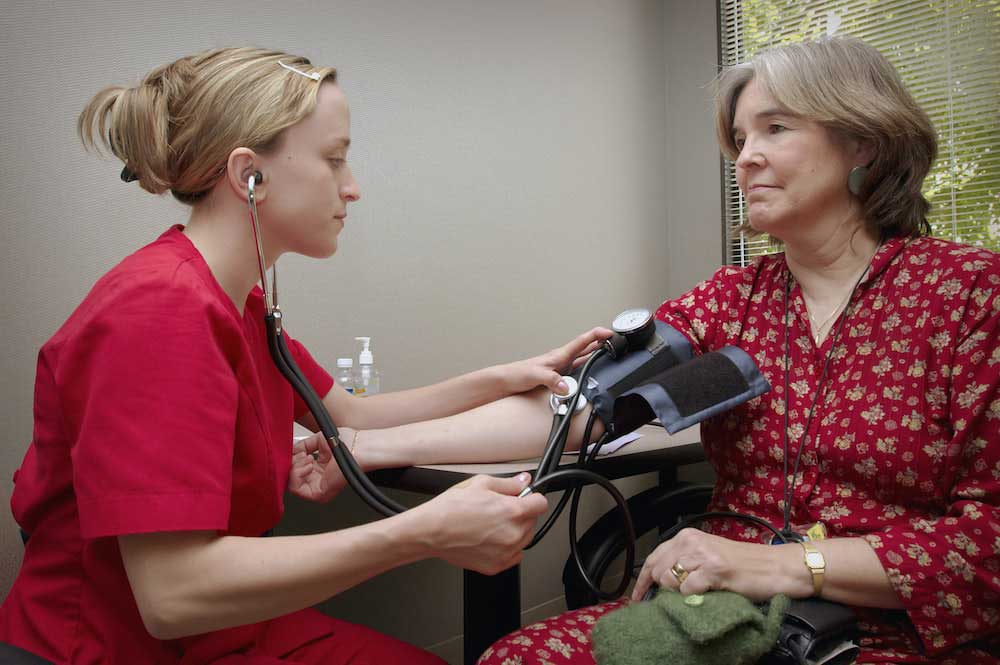When a healthcare provider wears a blood pressure cuff on your arm, your goal is to know how your heart is working. Hypertension is not an independent disease. However, over time, it can damage the heart and blood vessels and may contribute to hypertensive heart disease.
Here’s what you need to know about high blood pressure, also called high blood pressure.
What is blood pressure?
Your heart beats, creating pressure that forces blood through arteries, veins, and capillaries throughout your body. Blood pressure is the result of two forces. First, the heart pumps blood into the arteries. This is called systolic blood pressure. And when the heart rests between each beat, it’s called diastolic blood pressure. The two figures in a blood pressure reading are :
Systolic blood pressure and diastolic blood pressure. Healthy blood pressure is less than 120/80 mmHg, or “120 over 80”. The bottom number is the diastolic pressure and the top number is the systolic pressure.
Blood pressure fluctuates throughout the day based on activity. If your blood pressure is consistently above normal, meaning your blood is putting too much pressure on your blood vessel walls, it could be a sign of high blood pressure.
The higher your blood pressure, the higher your risk of developing other health problems, such as heart disease, heart attack, and stroke. Monitoring blood pressure outside of a doctor’s visit can be difficult. In general, blood pressure levels rise gradually, and high blood pressure typically has no obvious symptoms.

The good news is that hypertension is preventable and treatable. Both start with knowing the cause. Risk factors causing hypertension are :
Family History
One of the causes of high blood pressure is heredity. According to the Centers for Disease Control and Prevention’s Office of Public Health Genomics, genes play a role in high blood pressure, but the environment and other potential risk factors shared by family members likely increase risk.
Age, Gender, Race
Age, gender, race, and ethnicity can also affect the risk of hypertension. Blood pressure tends to rise with age, so about 9 out of 10 Americans will develop high blood pressure in their lifetime. Women are also about twice as likely as men to develop high blood pressure in their lifetime.
Black people are more likely to have a high blood pressure than most other races. Compared to whites, blacks are also more likely to develop high blood pressure early in life.
Diet And Exercise
Knowing your family history and personal risk factors is important, but you should also consider causes you can control. Diet and activity level are two key factors for her.
When it comes to diet, aim to eat more whole grains, fruits and vegetables. Try to reduce foods high in sodium, saturated fat, and cholesterol. Look for fruits and vegetables that are rich in potassium. May reduce the effects of sodium on blood pressure.
Exercise is also important. 150 minutes of moderate-intensity activity per week can help lower blood pressure and avoid chronic high blood pressure.
Smoking And Alcohol
Smoking and drinking alcohol also increases the risk of high blood pressure. For a woman, that means she drinks more than one cup a day. In men, there are two or more.
Nicotine in cigarettes raises blood pressure. Inhaling the carbon monoxide produced by smoking cigarettes also reduces the amount of oxygen carried by the blood.
Health Issues
High blood pressure can be caused by a number of medical issues. Approximately 6 out of 10 individuals with diabetes also have excessive blood pressure. When insulin issues make it impossible for glucose to enter cells, that sugar might accumulate and harm blood vessels.
Pregnancy can also cause high blood pressure. The woman and her child may be at risk for difficulties during pregnancy, birth, and postpartum due to this syndrome. Women between the ages of 20 and 44 who are pregnant in the United States have high blood pressure in 1 in every 12 to 17 pregnancies.

For proper management of high blood pressure to avoid problems in the future visit Texas Specialty Clinic, call Us Now.
